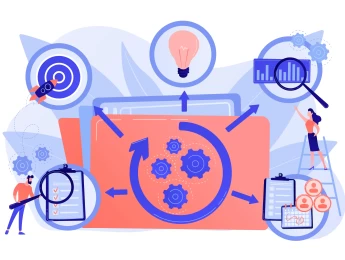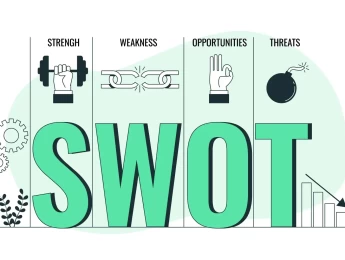Securing funding for new projects is a major challenge for organisations, as stakeholders are increasingly cautious. To attract support, businesses must craft compelling, scalable project proposals.
A successful proposal relies on strong project planning and a clear roadmap. Writers must consider budget, recruitment, customer impact, and risk mitigation.
Targeting the right funders requires research into stakeholders' past projects and interests. Conduct thorough research, gather feedback, and use data to support your proposal.
Proposals must be clear and accessible to avoid deterring investors. This course provides the skills and best practices needed to present your information and secure funding effectively.
Upon completion of this course, participants will be able to:
- Structure your proposal most sensibly.
- Understand the different accessibility measures that you need to put in place.
- Acknowledge the risk areas of your proposal and address mitigation and continuity plans.
- Advertise the reasons for the planned change.
- Demonstrate your research and planning methods intelligently.
- Use data to back your ideas.
- Consider the different interests and concerns that each investor may have.
- Negotiate and take on board constructive feedback.
- Understand the benefits of proofreading and rewriting sections.
- Strengthen weaker areas of your argument.
- Identify the cause and effect of your changes and display this to investors.
- Write in a way that sells your idea to potential investors.
This course is designed for anyone responsible for project planning or securing investments for new opportunities within a business. It would be most beneficial for:
- Project Planners
- Business Owners
- Marketing Managers
- Operations Managers
- Bid Writers
- Finance Operatives
- Directors
- Change & Control Managers
- Partnership Managers
This course uses various adult learning methods to aid full understanding and comprehension. Participants will participate in interactive seminars to discuss the best proposal presentation methods. There will be group and solo exercises to practice writing skills and techniques and practical activities to understand the pros and cons of projects and how to identify and acknowledge them in writing.
Participants will also have the opportunity to develop their project roadmap, conduct small-scale research, and discuss budget requirements before writing a brief proposal and presenting it to the group.
Day 5 of each course is reserved for a Q&A session, which may occur off-site. For 10-day courses, this also applies to day 10
Section 1: Your Project Plan
- What do you aim to achieve?
- SWOT analysis.
- Who does your project benefit?
- Consider your budget and requirements.
- Your recruitment implications.
- Equipment, tools, and systems.
Section 2: Analysis, Feedback & Research
- Evidencing the need for your project.
- Finding the right audience.
- Surveys and auditing.
- Accurate record-keeping.
- Your reporting and analysis.
- Drawing conclusions from research and data.
Section 3: Your Project Roadmap
- Discovering your customer journey.
- What problems does your project solve?
- Concept development.
- Call analysis, data, and preliminary working plan.
- Auditing and reviewing your changes.
- Who needs to be informed of your planned change?
Section 4: Identifying the Pros & Cons
- Acknowledging your problem areas and selling your mitigation tactics.
- Selling your benefits and tailoring them to a specific target audience.
- Predicting and plotting your outcomes.
- Your project strategy and ‘plan B’ implementation.
- Legal requirements and commitments.
Section 5: Researching Your Audience
- Which investors might be interested in your project?
- Researching your potential investors and aiming to please.
- Selling new ideas to old stakeholders.
- Negotiation and sales techniques that go under the radar.
Section 6: Writing Your Proposal
- How to structure your proposal.
- Reading and re-reading your content.
- Layout, imagery, and data evidence.
- Presenting the ‘then and now’ picture.
- Stating your budget, technology, and staff requirements.
- Selling your blue sky and acknowledging the BCP.
Upon successful completion of this training course, delegates will be awarded a Holistique Training Certificate of Completion. For those who attend and complete the online training course, a Holistique Training e-Certificate will be provided.
Holistique Training Certificates are accredited by the British Assessment Council (BAC) and The CPD Certification Service (CPD), and are certified under ISO 9001, ISO 21001, and ISO 29993 standards.
CPD credits for this course are granted by our Certificates and will be reflected on the Holistique Training Certificate of Completion. In accordance with the standards of The CPD Certification Service, one CPD credit is awarded per hour of course attendance. A maximum of 50 CPD credits can be claimed for any single course we currently offer.
- Course Code PO4-104
- Course Format Classroom, Online,
- Duration 5 days













